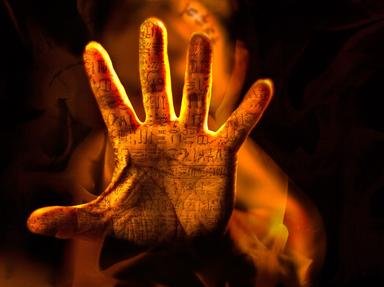Quiz Answer Key and Fun Facts
1. Since its beginning in 1901, the NObel Prize has become the ultimate recognition for achievements in physics, chemistry, medicine, economics, literature, and peace. But over the years, some repressive governments -- notably Nazi Germany and Soviet Russia -- have forced winners to say "NO" to the Nobel. What Russian writer, author of "Doctor Zhivago" among other works, was forced by his government to decline the 1958 Nobel Prize in Literature?
2. Two comic strip characters found NO respite when facing off against the Deranged Mutant Killer Monster Snow Goons, created in a Frankenstein-style snowman-building experiment gone horribly awry. The strips from this storyline were part of a newspaper comic that ran for ten years featuring what protagonists?
3. People in trouble with the law will often plead "NOlo contendere", or "NO contest": they do not admit (or deny) committing the crime, but they accept punishment for it. One of the most famous people to make this plea was Richard Nixon's first vice president, in answer to the charges of tax evasion which had forced his resignation. Who was this man, who summed up the spirit of "nolo contendere" as "I didn't do it, and I'll never do it again"?
4. The history of women in academia is, sadly, filled with people saying "NO." This brilliant mathematician had a four-year struggle before she was permitted to teach at the University of Gottingen; only fourteen years later, she lost her job again as Nazi racial laws came into effect. Who was this woman, who essentially founded the science of abstract algebra and changed the face of theoretical physics with her work on symmetries and conservation laws?
5. In a parliamentary system, a successful motion of NO confidence can be used to bring down a government, either by its resignation or by a new general election. Now enshrined in the conventions or constitutions of over a dozen countries, this principle is nevertheless rather young. Who was the first Prime Minister brought down by a vote of no confidence?
6. NOvocaine -- the trade name for procaine, a local anesthetic -- replaced cocaine around the turn of the last century and has in turn been largely replaced by lidocaine. In the meantime, though, its use has become virtually synonymous with what branch of medicine?
7. NOh is an ancient form of opera. With a bare stage and only a few characters (often wearing masks), emphasis is placed on the body language of the actors and the poetry of the chanted lyrics. From what land does this theatrical tradition come?
8. NOva Scotia, Canada's second-smallest province, looked very attractive to early explorers. In fact, it was the site of the very first permanent western-hemisphere European settlement north of Florida, which is unfortunately too long a slogan for the license plates. Where was this settlement, and who settled it?
9. In a heartbreaking novel by Daniel Keyes, a mentally retarded man is given an experimental treatment that makes him a genius -- but when his new mental powers begin to fade, he is told that there is NO way he can keep them. What is the name of this book, the basis of the 1968 movie "Charly"?
10. Dr. No was the first of the James Bond movie villains, facing off against Agent 007 in the 1962 movie of the same name. Who played the dashing, dapper British spy in this outing?
Source: Author
CellarDoor
This quiz was reviewed by FunTrivia editor
gtho4 before going online.
Any errors found in FunTrivia content are routinely corrected through our feedback system.
